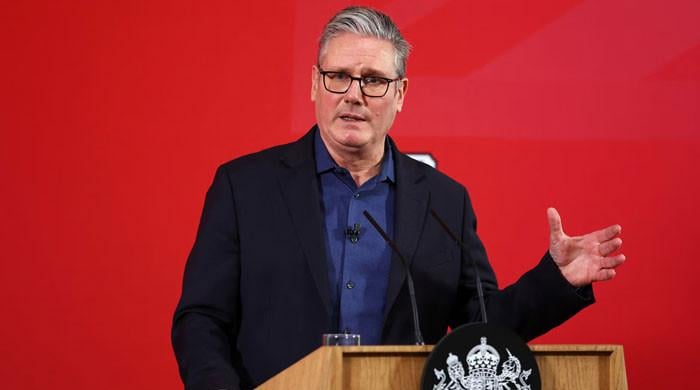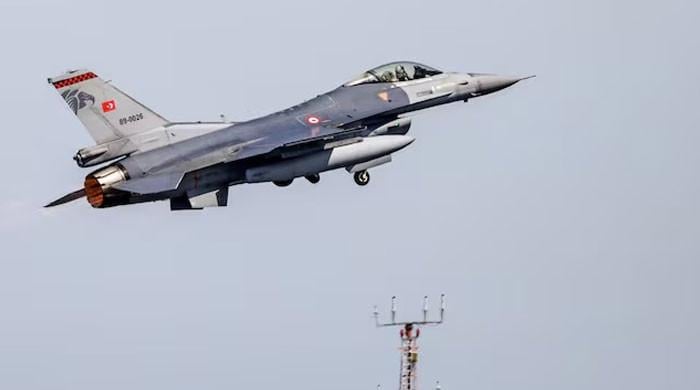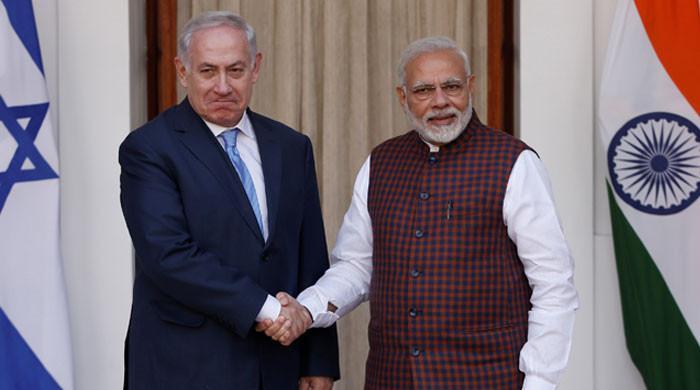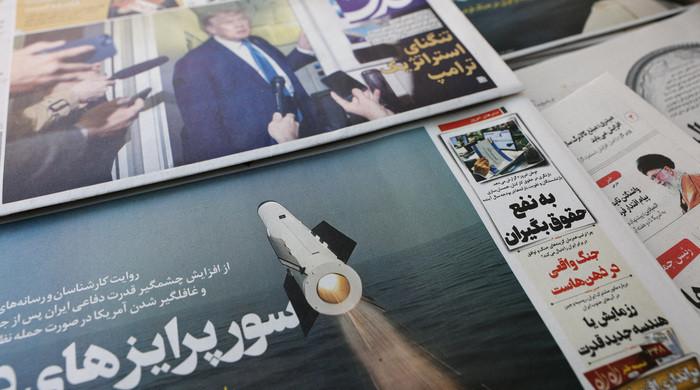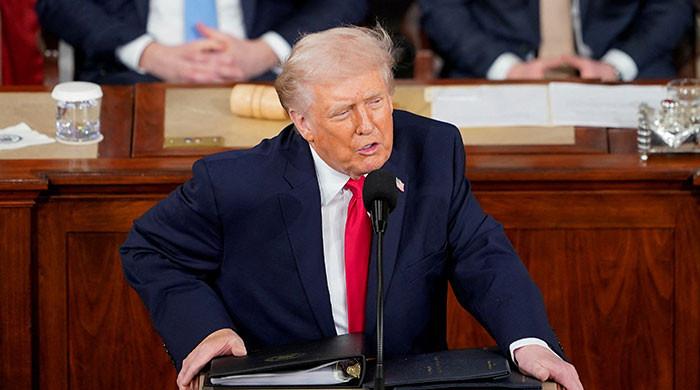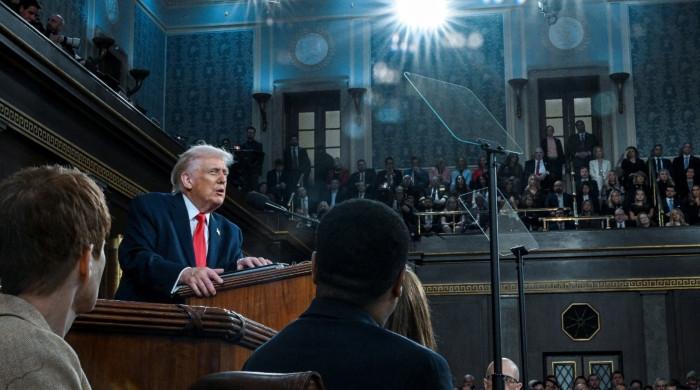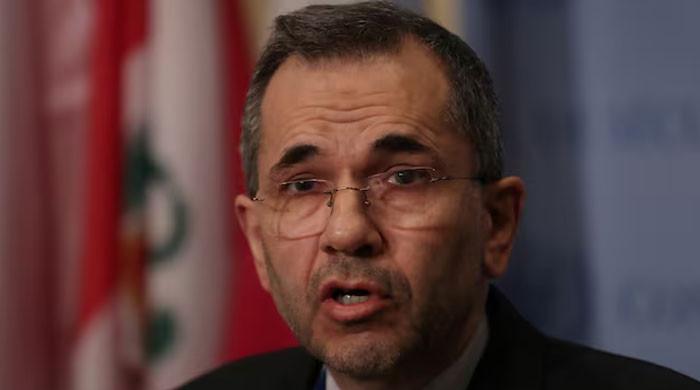Women's Day: Thousands protest for rights across world cities
Women in thousands marched in Madrid to celebrate International Women's Day and demand equality
March 09, 2023
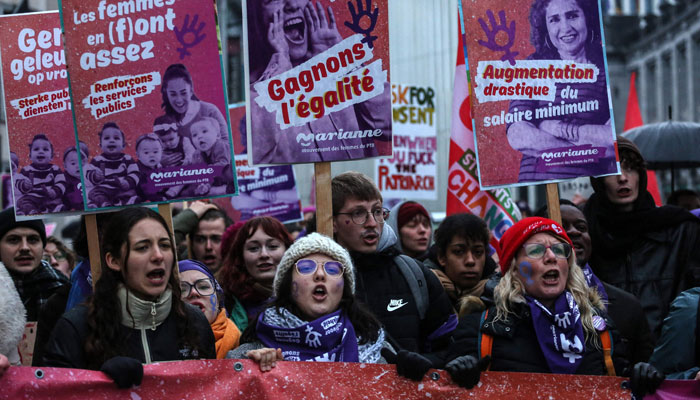
MADRID: Women hit the streets from Kabul to Madrid on Wednesday to mark International Women’s Day and stand up for rights that are coming under increasing attack.
With women banned from universities by Afghanistan’s Taliban rules, Iran’s repression of the Mahsa Amini protests, new US restrictions on abortion rights and the Ukraine war’s impact on women, the protesters had plenty of grievances to air.
But as thousands raised their voices and marched through cities across the world, others were forced to keep a low profile as authorities sought to block the demonstrations.
As night fell in Madrid, huge crowds of women, many wearing purple, packed the tree-lined boulevards of the Spanish capital, singing and shouting slogans to the rhythmic beat of drumming.
"Both of my grandmothers fought for us to have certain freedoms that people are now trying to take away from us, so for me it’s really important to keep up the struggle," said Mariam Ferradas, a 52-year-old kitchen worker.
"We have to be here," explained another demonstrator called Alejandra, wearing a headband of purple flowers.
Organisers said hundreds of thousands turned out to demonstrate but officials put the figure at 27,000.
Earlier in Barcelona, several thousand purple-clad students marched through the city centre, waving banners reading: "Feminism means fighting" and "We’re brave and we want to be free".
In Istanbul, several thousand women defied a local ban on protests and staged a "Feminist Night March" under the watchful eye of the police, but were unable to reach Taksim Square because armed security personnel had barricaded the entrances.
Whistling and chanting, they marched through the sidestreets, some holding up flares and shouting "government resign".
The march took place at the end of a day in which three more women were killed, Turkey’s DHA news agency reported.
Their deaths raise to 328 the number killed in Turkey since last year’s Women’s Day, the Stop Feminicides platform said.
Rare protest in Kabul
Earlier, an AFP correspondent saw some 20 women holding a rare protest in Kabul, capital of Afghanistan which the UN has denounced as the "most repressive country in the world" for women’s rights.
The Taliban government adheres to an austere interpretation of Islam and has imposed a slew of restrictions on women and girls since seizing power in August 2021.
Thousands also joined rallies across Pakistan, despite efforts by the authorities to block them on grounds of their controversial slogans addressing subjects such as divorce, sexual harassment and menstruation.
Rallies also took place in Thailand, and in Indonesia, but march organisers in Hong Kong called off a rare, authorised protest after activists were repeatedly summoned by the police.
In France, demonstrators marched in 150 towns and cities to demand "equality both at work and in life" in protests focused on the fight against a deeply unpopular pension reform that critics say is unfair to women.
‘Dramatic’ setbacks
In Washington, US President Joe Biden warned that "despite decades of progress, in far too many places around the world, the rights of women and girls are still under attack," pointing to Afghanistan, Russia and Iran.
And in Abu Dhabi, former US secretary of state Hillary Clinton said progress on issues affecting women and girls had been "dramatically set back" by the Covid pandemic and the "organised pushback" to the advancement of women.
In Kyiv, President Volodymyr Zelensky praised women for their central role in defending the nation against the Russian invasion, pointing to those who "teach, study, rescue, heal, fight -- fight for Ukraine".
Raising the alarm about the women journalists covering global conflicts, media rights watchdog Reporters Without Borders (RSF) said 73 were currently behind bars, calling for their "immediate and unconditional release".
Women journalists have paid the price for being at the front line in recent crises, it said. Of the 12 women journalists detained in Iran, 11 were arrested following the Amini protests, with two facing charges that could carry the death penalty, it added.
Mahsa Amini, a young Iranian Kurd, died in custody last year after she was detained for allegedly violating Iran’s strict dress code for women.
Meanwhile Brazil marked a grisly landmark on Wednesday with a study showing it had suffered 1,410 femicides last year -- the highest number since records began in 2015.
UN statistics show Brazil is one of the most violent countries in the world for women, with a murder rate of 3.5 per 100,000 female inhabitants.
Abortion rights in focus
This week, the European Union imposed sanctions on those responsible for violence and rights abuses against women in Afghanistan, Iran, Myanmar, Russia, South Sudan and Syria, with the UK following suit on Wednesday targeting those behind gender violence in Iran, Syria, South Sudan and Central African Republic.
Wednesday will see feminists mobilising over abortion rights following the US Supreme Court’s decision in June to overturn the 1973 Roe v. Wade decision that guaranteed a woman’s constitutional right to terminate a pregnancy.
In Paris, French President Emmanuel Macron announced his government would put forward a draft law enshrining abortion rights in the French constitution within months.




